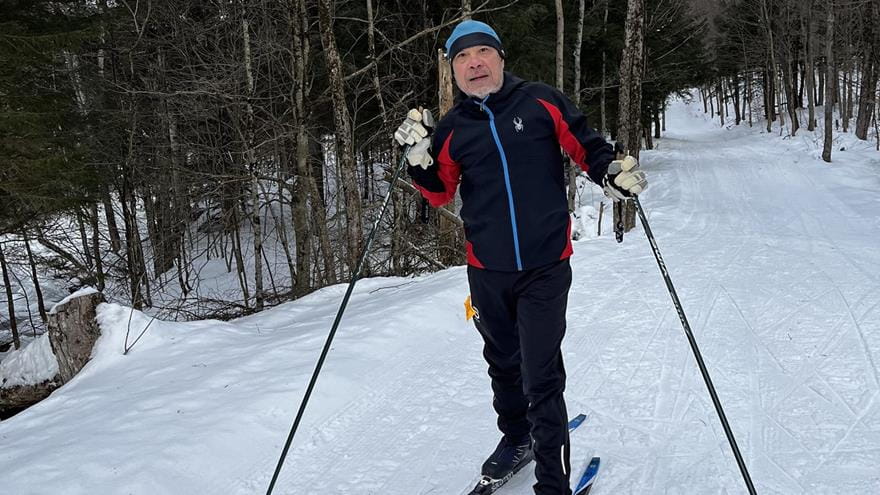Mandela Fellows Visit Drexel to Learn How to Lead
 By Ben Seal
By Ben Seal

Gathered inside a classroom on the seventh floor of Gerri C. LeBow Hall, 25 young African leaders peppered Drexel University President John Fry with a series of searching questions. How did Drexel’s commitment to civic engagement develop, they wondered, and how does the University plan to grow its international student body? What keeps Fry up at night (the health and safety of his students, he said) and does Drexel plan to build partnerships with universities in Africa (“emphatically yes”)?
The casual question-and-answer session in late June was part of a busy schedule for the Mandela Washington Fellows, a group of young civic leaders from all over sub-Saharan Africa visiting Drexel this summer to develop leadership skills in order to spark systemic changes in their home countries. The University is one of 39 institutions hosting a cohort of fellows who made it through a highly selective admissions process to be part of the program, which is sponsored at Drexel by the LeBow College of Business’ Institute for Strategic Leadership and the Office of International Programs. Two weeks in, the fellows are already soaking up information and ideas to help improve their communities.
“Evidently the way we’ve been leading Africa until now hasn’t been working, and we need to come up with other approaches that work,” said Unopa Makanyanga, a Zimbabwean who works with vocational training and child-protection organizations to help her community. “This opportunity provides another approach that could possibly work. It’s an opportunity to take what we learn here and create hybrid solutions to solve our problems.”

The fellows, who range in age from 22 to 35 and represent 18 African nations, will attend workshops over the course of their six-week stay covering decision making, social innovation, public policy and leadership. They will also have conversations with leaders at Drexel and in the surrounding community, including Fry and former Philadelphia Mayor Michael Nutter, and they will have ample opportunity to experience the city’s rich history and culture.
In Swaziland, Qiniso Motsa had been performing what he called “random acts of volunteering,” helping out one program before jumping to another, starting his own initiatives before losing steam. So he came to Philadelphia as a Mandela fellow to learn consistency and to develop leadership skills that will allow him to put together a team that can find sustained success and have a long-lasting impact on his community.
“I’m learning a lot of concepts around shared leadership,” said Motsa, fresh off a morning workshop on communication. “My concept of leadership was that there’s always that one strong dominant individual at the helm who everybody is following, but it seems that you can have different varieties of leadership depending on the situation and what you want to accomplish.”

Motsa is focused on deaf advocacy. He wants to find ways to ensure equity and quality of life for the deaf community in Swaziland, which he said has only one school for the deaf and an “incoherent, non-standardized” sign language that makes communication difficult. In just two weeks at Drexel, he’s already learned ways to assess himself and his relationships at work that he expects to help in the future. The warm reception on campus and in the surrounding city has made the experience all the more rewarding so far, he said.
“In the city of Philadelphia I have seen that you can strike up a conversation with a person you recently met and they want to know more about you,” said Motsa. “They are very interested, especially when you tell them you’re from Africa. … They show genuine appreciation for what you’re doing, and that makes us feel good about ourselves.”
For Tshepo Nkhabu, a cyclist from Lesotho who wants to build youth centers in his village to provide a safe space when schools are closed, the connections made through the Mandela fellowship are already paying off. He’s met with leaders at organizations like Neighborhood Bike Works to develop ideas and relationships, and he’s learned that Drexel isn’t the inflexible, self-serious institution he expected of an American university.
“You meet people who are friendly, people who are willing to help, people who accept that we are still growing,” said Nkhabu. “They give us a chance to explore.”

The fellows have been discovering new ways of thinking that will influence their efforts to help members of their communities back home, whether that involves analysis of the ways systems function or simply a new way to communicate ideas.
“Where I come from, the teaching style is a bank of information. You sit in class and information just gets pumped into you,” said Makanyanga. “But here, they’re encouraging critical thinking. So you can really feel that they take you on a journey in class, and by the end of the journey, you’re at this aha! moment. If we could do this in Africa, the way people thought would be so different because we approach our problems academically and we don’t have real, practical solutions, which is what we do here.”
The Mandela fellows will leave Drexel at the end of July with new relationships to pair with their new ideas.
“I aim to make a real concrete friendship with the University, not just take a short course here and then I’m on my own again,” said Nkhabu. “I’m starting a new family with the University.”
Drexel News is produced by
University Marketing and Communications.
